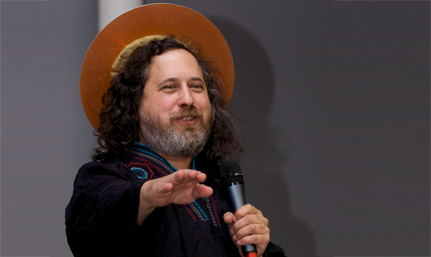 |
Dr Richard Matthew Stallman
3 September 2013 |
“Free software is a matter of the users’ freedom to run, copy, distributes, study, change and improves the software.” That is according to well-known freedom activist and programmer, Dr Richard Matthew Stallman, founder of the Free Software Foundation and leader of the GNU project.
The computer programming expert visited the Bloemfontein Campus of the University of the Free State, where he delivered a guest lecture on “A freeware generation.”
At this lecture, Dr Stallman, referred to by many as ‘the father of programming’ spoke about the threats that non-free software has and how the users are mandatory controlled by the software, instead of the user having complete freedom on the programme itself.
He told the audience in the Albert Wessels Auditorium that free software has advantages for the user, such as:
- The freedom to run the program, for any purpose.
- The freedom to study how the program works, and adapt it to your needs.
- The freedom to redistribute copies so you can help your neighbour.
- The freedom to improve the program, and release your improvements to the public, so that the whole community benefits.
Thus, ‘free software’ is a matter of liberty, not price.